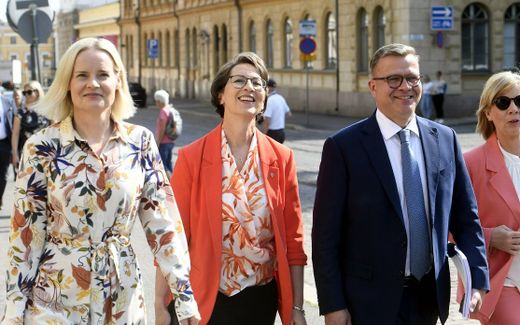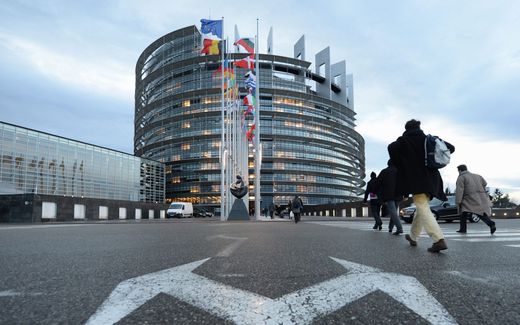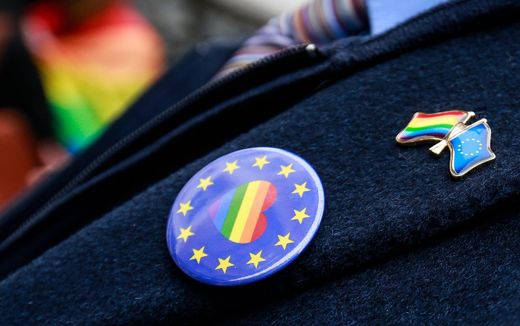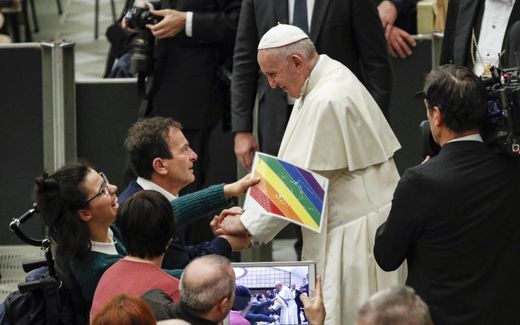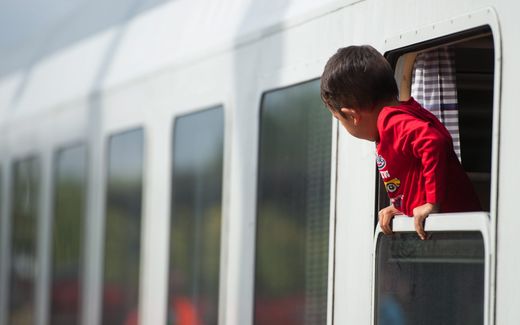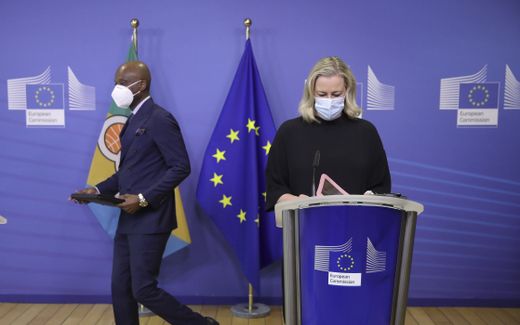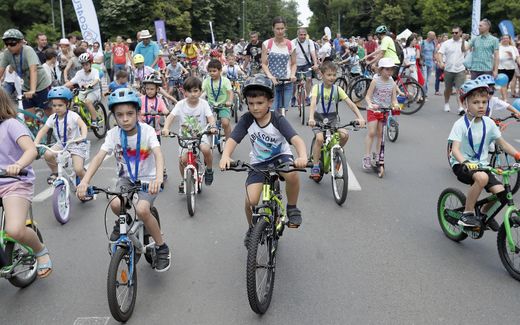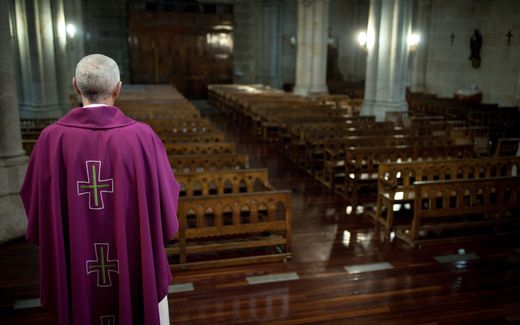Hurry up, Europe, and find your old spirit again, urges Rocco Buttiglione
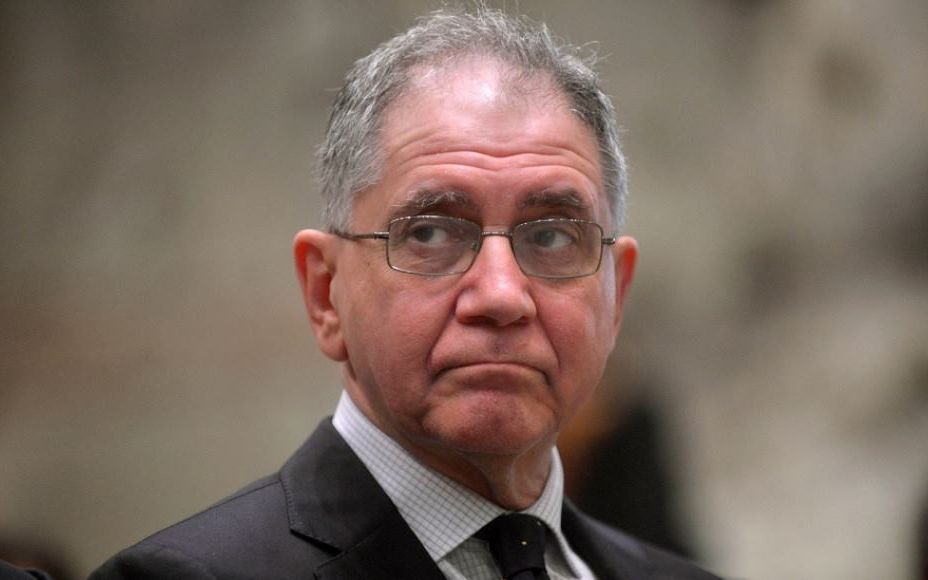
Rocco Buttiglione is still full of energy to get the European Union on its original path; to protect the Christian civilisation. Photo Academia de Líderes Católicos
European Union
Europe was about to marry but left his bride at the altar. After discovering he was alone, he could not find the lady again. Would it be possible to go on alone without the delight of being in joyful company?
No doubt, Rocco Buttiglione (1948) is fond of Italy. He loves its music, its food, and its wines. But he likes Europe too. For him, that is no contradiction. “You can only love Europe if you love your own nation first.”
Buttiglione has been active in many countries of Europe all his life, both as a minister under Prime Minister Berlusconi and as a professor. He speaks several languages. This week, he presents a booklet in German: “Geist und Gegenwart”. He will do this when he receives the Thomas More Award from the Order of St. George in Vienna, Austria, for the defence of Christian values.
German is a language Buttiglione is familiar with. One of his best friendships was with a German. As the leader of the Christian Democratic Party in Italy, he came into contact with his counterpart in Germany: Helmut Kohl, the German Chancellor, from 1982 to 1998. They became friends. “Helmut liked Italy, I loved Germany, and we both loved Europe.”
Rocco Buttiglione
Rocco Buttiglione was born in 1948 in the south of Italy. He had an academic career in law and philosophy. He became a professor at several universities in Europe and the United States, mostly Roman Catholic.

In 1994, he went into the Italian parliament for the Christian Democratic Unione dei Democratici Cristiani (UDC), of which he was a leader. Later he held several ministerial offices in the governments of Silvio Berlusconi.
In 2004, he was presented as a candidate for the European Commission. In the European Parliament, he was questioned about his idea about homosexuality. He said this was a “sin” but “not a crime”. For the secular part of the European Parliament, this was a reason to try to block him as a candidate. After this, Buttiglione decided to withdraw as a candidate.
Together, they visited the German graveyard in Rome. Many fled from the Weimar Republic after Hitler came to power in 1933 and stayed in the Vatican. “There, we had lengthy talks about European history. We liked each other and became friends.”
What type of person was Helmut Kohl?
“He was a man who listened. He had a special gift for that. He wanted to understand people. When we sat in that graveyard, he always asked questions. Because of that, he had an intuitive insight into several European cultures and knew which policy would fit where.”
Good listening is a rare skill in politics, the Italian philosopher says. “I think a Christian politician should be able to do that. It is not part of your program but your personal style.”
Kohl was a wise man as well, Buttiglione found. “About migration and people coming to Europe, he said: you cannot defend the welfare of Europe with walls, only by expanding this welfare outside the borders of Europe. I think that is wise. You could use this insight today.”
He remained friends with Kohl, also after the crisis he went through after he lost the elections in 1998. “He was accused of all errors. Nobody defended him. He said to me that he had made some minor mistakes. But he did not deserve that his party betrayed him. Later, his wife died very tragically.”
Russia
Kohl can still be an example for the European Union, Buttiglione thinks. “He said that Europe had two lungs: the Western European one and the Eastern European. We had to deal with Russia. That is part of Europe as well. But the only thing we did was buy gas from there. That is not the same as having a policy for Russia.
At once, President Putin was at crossroads to connect with the EU. We should have given him a reason to connect more with the West. But the only we did was saying that he did everything wrong.”
Because of this, Buttiglione thinks that the European Union is also responsible for the Ukraine war. “There is no doubt that this war is wrong and that Ukraine deserves our support. As a visiting professor, I have lectured at the Catholic University in Lviv. I feel solidarity with them.”
A dominant voice in the European debate is to destroy Putin or the Russian Federation. Buttiglione thinks this is highly dangerous. “Don’t forget that Russia has nuclear arms. But making Russia part of our future would be much better.”
The Italian professor is ready to join the cardinal sent by the Vatican to speak with the Kremlin about peace. “It won’t lead to immediate success. But we have to speak with them. There are reasonable solutions.”
Speaking about reasonable solutions: what are those? Leaving Crimea to Russia?
“No negotiator would table that option. Kyiv would never agree with that. First, you try to stop the fighting since people are dying daily. And to let the people go back to their homes. In the long run, we can ask the people in a referendum what they want.”
In the booklet you present in Vienna, you start by speaking about the “forgotten bride”. What do you mean by that?
“It comes from an Argentinian folk story. The bridegroom brings his bride to the altar in the church to marry her, but he has to do something else first. And then, he can’t find her back.
That is the sad story of the European Union. After the Second World War, the founders found their spirit in Christian values. That gave unity.
For several decades, we have worked with them. Also, when the European story seemed to reach a standstill in 1977, God sent Pope John Paul II. He brought a new spirit, especially to Central and Eastern Europe. Think only of Solidarnosc and Lech Walesa in Poland.
This, and other things, led to the Fall of Communism. And that brought the reunification of Germany. And the Treaty of Maastricht.
For many of us, this was an optimistic time. We hoped this would help a new beginning in the unification of Europe.”
Enlightenment
But history took another direction. Buttiglione hoped Christianity would be in the new European Constitution in 2004. But apparently, that was not possible. “How strange was that? All values could be mentioned: the Greek and Roman heritage, the Enlightenment, but not Christianity. But without the Bible, the Enlightenment would not have been there.”
Buttiglione knows the criticism that only a nation-state can have a constitution. “I know, there is no European demos. But against Roger Scruton and Lord Dahrendorf, I have always said: the nation is not an ethnic concept but a cultural one. And let’s also ask the question: are we ready to become one people? We know, as Europeans, we share a lot. Then we also can have a common destiny.”
Thomas More Award
Rocco Buttiglione will receive the “Sir Thomas More Award” from the Old Order of St. George in Austria. The price is given to people who can be seen as the successor of the English statesman Thomas More (1478-1535) and can be shown as role models for the next generation. To be selected, they must have put truth above power and have suffered for their Christian convictions.
Buttiglione says that Jean Monnett, one of the founders of the European integration, said at the end of his life: “If I had to do it again, I would start with the common values, not with the common culture.” The Italian professor thinks he was right. “If you cannot mention the values of a people, they are not a nation.”
Instead of the Constitution, the EU received the Lisbon Treaty. A terrible thing, according to the Italian. “The key to Lisbon is bureaucracy. That is not what we need mostly. Bureaucracy is a means to handle repetitive issues. But for new things, you need political leadership based on common values. Lisbon does not offer that.”
Begeisterung
Instead of bureaucracy, Buttiglione wants to see what he calls “Begeisterung” in German; a new spirit. Instantly, he quotes the European hymn “Ode to Joy” with the many referrals to heaven. “There you have the divine element, the Father who loves us. There you also have the community, the brotherhood. At the moment, Europe has a culture of extreme individualism. That will destroy us. We need to go back to the altar and find our bride again. Really, we have taken the wrong path. Purely individual rights cannot bind us together. Europe is larger than me. We have to define that common interest.”
By saying that Europeans have to return to their old bride, you assume we still love her, including the values she represents. But is it not more plausible that, as Europe, we have lost the love for this lady and that we identify with other ideals now?
“Well, who knows? But it is still worth trying. Of course, old values are put to the test of every new generation. And in this tradition, things change. But that is different from breaking up the dialogue of generations.
I am not saying: let’s go back to yesterday. But: let’s go back to the values of yesterday. Today, they are completely denied or forgotten.”
You sometimes refer to the Pope. What place do you give them as world leaders?
“The Pope is a political leader, and yet, he is not. He certainly does not represent a particular party. He is a communal leader. His task is to bring unity. In that way, he can help the nations to come together. I think the Pope should be listened to. He can help to breach the gap between the leaders and the masses.”
Flourish
In the meantime, Europe has to choose, the philosopher stresses. We are not alone in this world. “There is not only the US and Russia, but also China and India, and the upcoming powers of big companies. In this world, Europe is too small. National states have lost sovereignty, but there is no European sovereignty. We can only survive if we learn our sovereignty as a unity.
As I tell my Polish friends, You can’t defend Christian values in an isolated Poland, but only in Europe. That Europe will not be a copy of Poland, but at least a place where these values can flourish.”
Speaking about Poland: the EU is in conflict with this member state about the independence of the judiciary. The same applies to Hungary. How important is the rule of law for you in Europe?
“Very important. But we have to talk to these member states. And find a reasonable solution. People of good will can do that.
My impression is that there is another problem behind all this. Western European member states demand that Poland and Hungary accept abortion, same-sex marriage and gay rights. But they do not compel to that. And they have the right to have their own family policy. It is because of this that other countries fight with them.
We only brought these new member states into the EU because we were only interested in the enlargement of our world. The new member states themselves were irrelevant to us.
And what did we show ourselves? We, as Western Europeans, had relative values. We said that truth did not really exist. And we asked them to become like us.
But the Poles and Hungarians chose for their own culture. They did not go the path of radical individualism but of common interests. They knew that you must love your country first before you can love Europe.
The result is that the west of the EU is no longer in dialogue with the eastern member states. They are not listening anymore to each other. I only hear a repetition of slogans.”
Gay activist
Let me tell you something, the Italian philosopher says, about the Polish city of Lublin. Since 1994, he has had an honorary doctorate from the university where John Paul II once was a professor. And since 2005, he has been an honorary citizen of the city. But some years ago, the love broke. What had happened?
“A young militant for gay rights had attacked a pro-life activist there. He was imprisoned and did not hear anything about his process for two months. A friend of mine, a priest and professor, signed an appeal for him, saying he would either be put on trial or set free. The Catholic university saw this as a provocation of this professor and accused him of betraying the fundamentals of the institution. I was asked to give a speech there but wrote: I cannot come if you do not take this professor back. They didn’t, and I refused to go there.
In this, you see an enormous overreaction against gays. I am not in favour of gay marriage. But that does not mean that gays have no civil rights. Therefore, I say: listen to reason.”
In your booklet, you write about “der entwurzelte Mensch”; people without roots. What do you mean by that?
“That is a new elite. They have many truths but don’t believe in one of them. They feel at home in the whole world but do not love one country.
They prefer to earn money with other money. Not by gathering materials and producing something. They earn but do not work. The only value they know is the value of money. With that, they buy everything, even love.
They are deeply alienated from the world they are from. They do not know lasting relationships. Very often, they die alone. And empty. Well, many leaders today belong to this elite.
The ordinary people feel a gap between them and the elites. For that reason, they rather follow populists.
The populists seduce the people. They tell them what they want to hear – and win. They make democracy into show business. For this reason, you need values to guide all of us.”
Speaking about show business: On the day that we talk is the funeral service of the late Prime Minister of Italy, Silvio Berlusconi. You worked with him as a government minister. Of him is said that he made politics into show business.
“That is true. He was a master in that. But Silvio was more, I believe. But today, I recommend him to the mercy of God.”
Related Articles


